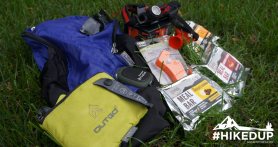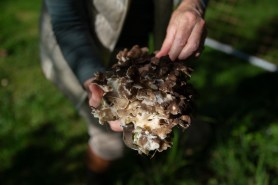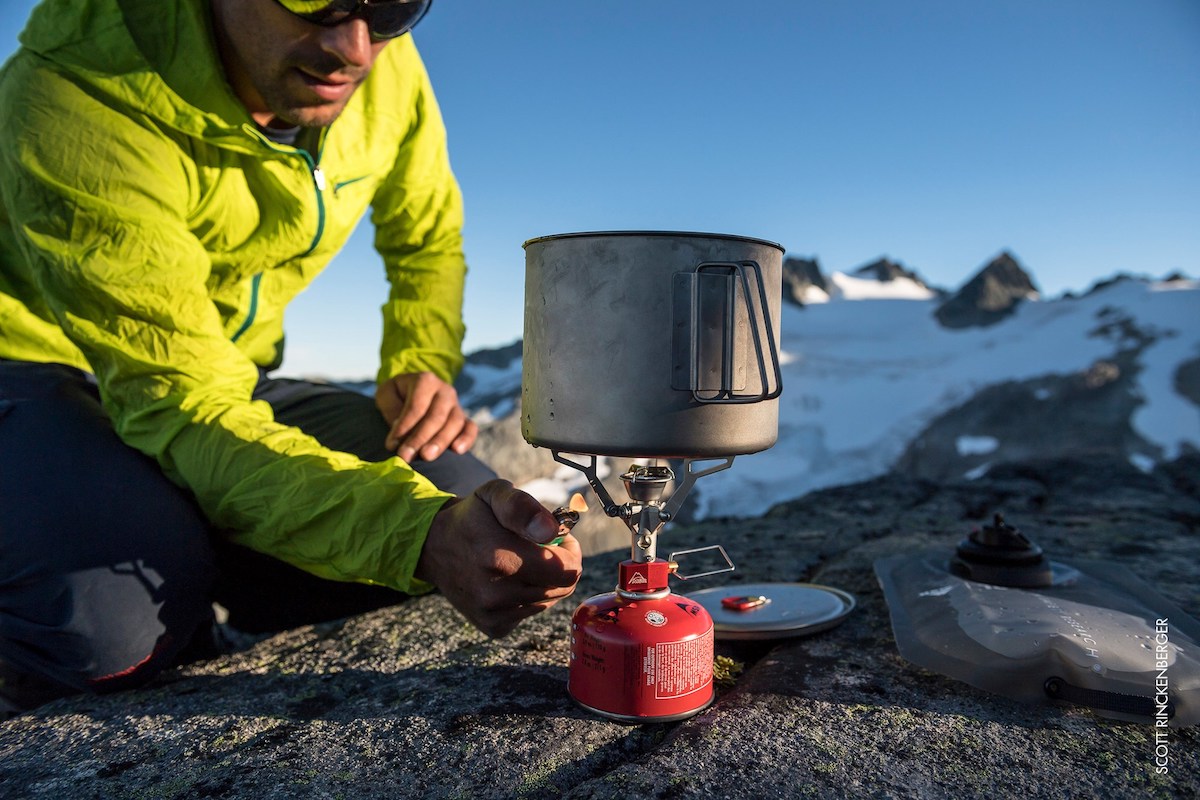

Titanium is a backpacker’s best friend. It’s ultra-light—45% lighter than steel—and stronger than aluminum, which is what many camping pots are made of.
Videos by Outdoors with Bear Grylls
As with most ultralight backpacking gear, titanium is also expensive. While you can get a whole set of nesting aluminum Coleman pans for about $15 on Amazon, one small titanium pot could cost you well over $60.
Based on my experience, though, titanium could be the answer to cutting quite a few ounces from your pack for your next backpacking trip. Plus, if you take care of it, it just might be the last pot you ever buy. (Read to the end for titanium-care tips.)
Can’t Go Wrong with These Titanium Pot Options
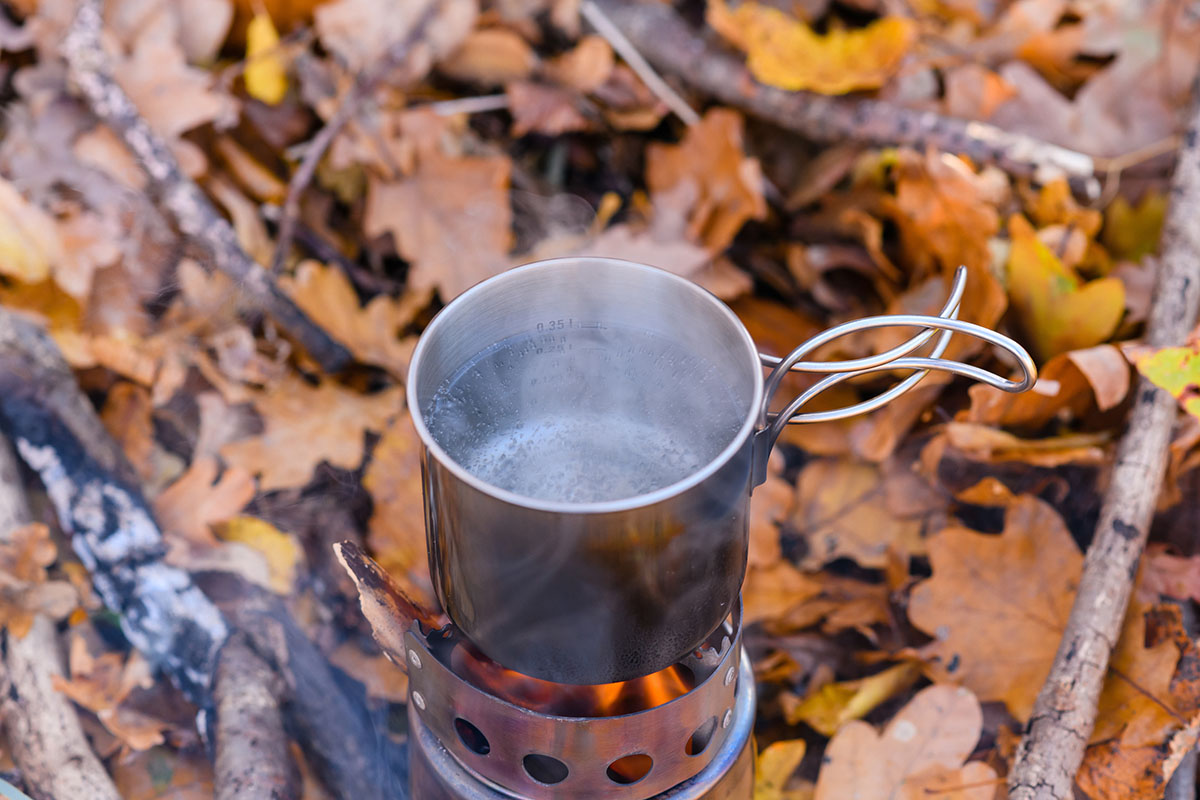
- Evernew Titanium Pot with Folding Handle, $65 from Amazon
I recently used Evernew’s 4.05-oz, 900 ml titanium pot for a backpacking trip to the Bavarian Alps. Every time I picked it up, I marveled at how seemingly weightless it was. The handles fold around the pot for storage and have a heat-safe coating, so you don’t need to pack an extra tool to lift the pot while it’s hot. The brand has pots in quite a few different sizes. - Snow Peak’s Trek 900 Titanium, $60 from REI
Iconic Japanese brand Snow Peak is also well-known for its svelte cookware. Their Trek 900 is a bit heavier than the Evernew model at 6.17 oz, but it’s a bit more versatile—the lid doubles as a tiny frying pan. - MSR Titan Kettle, $70 from REI
MSR’s Titan Kettle doubles as a mug (just be careful when sipping from a hot pot). Its lid also has a small steam vent hole, which makes it a bit faster to spot when your water is boiling. With a 900 ml capacity, the Titan weighs 4.2 oz. - Toaks 750 ml Pot with Bail Handle, $30 from REI
If you’re hiking alone and only boiling water, the 750 ml pot from Toaks might be your best and lightest bet—it weighs only 3.9 oz. A detachable bail handle allows you to hold it over heat more easily (or ditch it to save a few grams), and the venting lid locks into place.
How to Care for Your Titanium
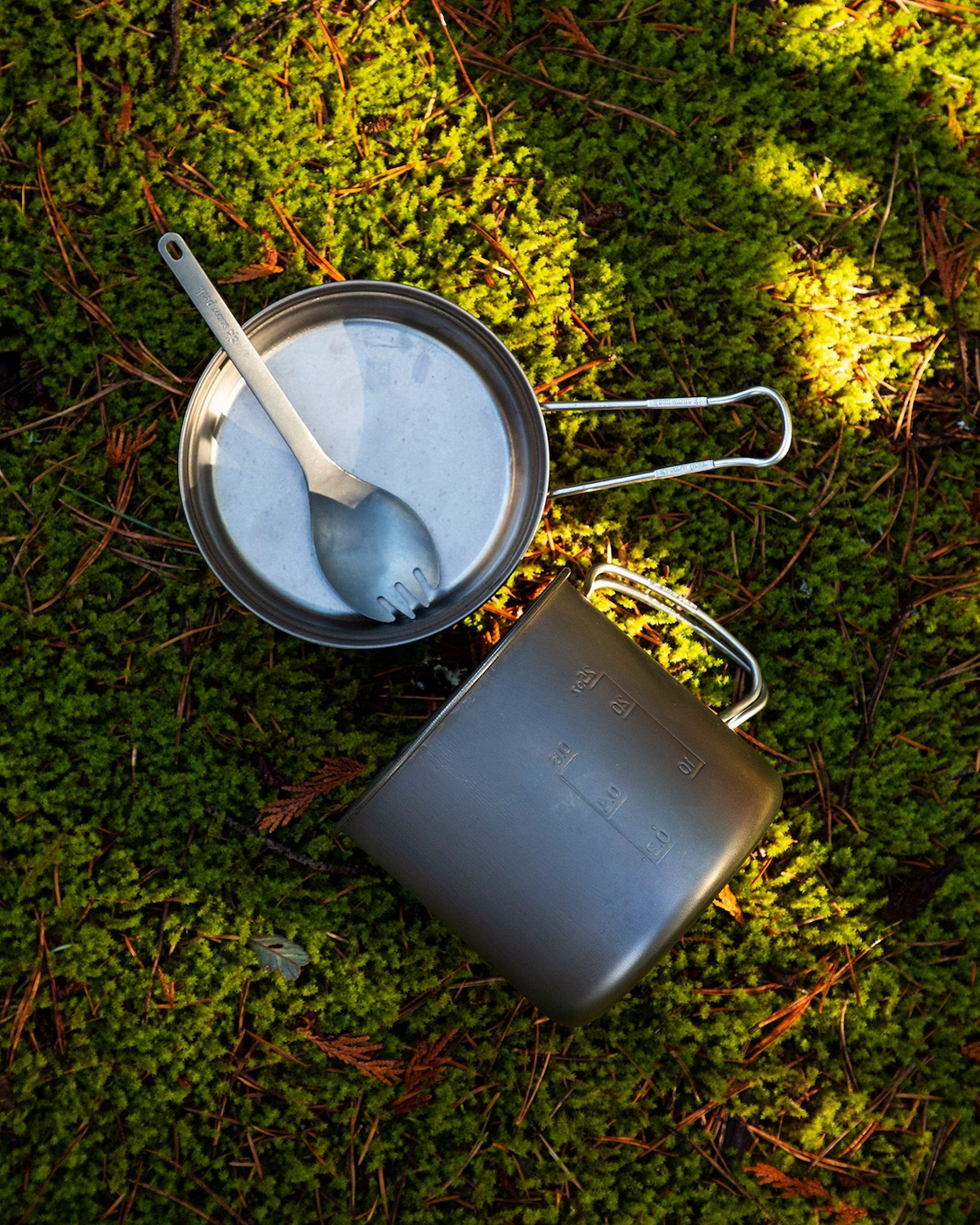
No matter which titanium pot you go with, maximize your investment by taking care of it. Cooking food in a thin titanium pot can make it easy to burn, which is a mess to clean up at camp. While more intrepid camp chefs might want to fry up a storm even in the backcountry, I currently only use my pot to boil water for tea and dehydrated meals, which eliminates the need to wash dishes. Titanium isn’t a nonstick material, so you might have to get creative if you want to cook elaborate meals with minimum mess.
You may notice that your pot changes to shades of blue or purple after you’ve used it a few times, and that’s totally normal. You won’t be able to scrub the color out; that’s a chemical reaction to heat, and it’s permanent, but it’s nothing to worry about.


